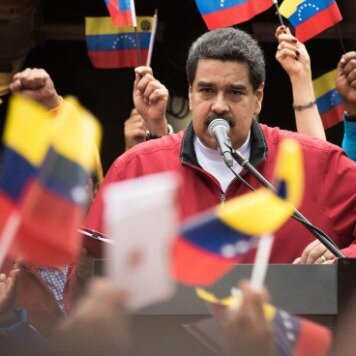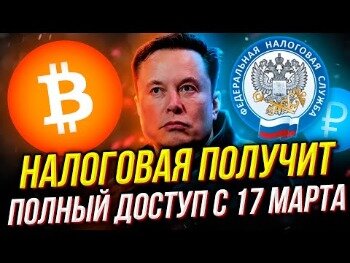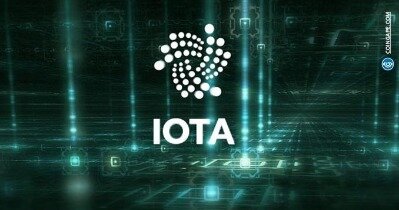Venezuela Pegs Bolivar To Cryptocurrency To Save Country From Economic Collapse
Content
- Gold, Rabbits And Crypto: Venezuela’s Strange Economic Plans
- What Is The Price Of Petro Coin?
- North Korea Is Dodging Sanctions With A Secret Bitcoin Stash
- Bubble Or Bankroller?
“They’re using oil as a physical asset but don’t explain the economic policies around how that’s going to be tracked. You almost know for certain that it’s fraud.” The NEM Foundation released a statement confirming the Venezuelan government’s intent to use NEM’s blockchain but also stressed that the Foundation has no direct involvement in the Petro’s development. It’s also unclear how exactly the asset is tied to oil, particularly in light of Maduro’s latest proclamation that the Petro will also be anchored to the physical Bolivar Soberano currency. Independent research institution Brookings concluded not only that the Petro circumvents sanctions, but went as far as saying it undermines other cryptocurrencies by centralizing and manipulating a technology meant to be decentralized. The startup’s grassroots campaign aims to expand Send’s network both by convincing local businesses to accept SDT as currency and by recruiting local “WeSend agents” to do the exchanges from SDT to bolivars. The blockchain network facilitates transactions, but people need physical exchange and payment points to either buy goods directly with SDT tokens or to cash out into bolivars and US dollars.
- The Maduro regime continues to increase the money supply and the minimum wage, leaving workers with more currency that affords them steadily less.
- The galvanized railings and gates were exactly as specified – the measurements needed to be exact to fit the 3.4 metre space.
- This analysis shows that there are some sever signs of money laundering.
- Julian, another Venezuelan who chose to remain anonymous and spoke to us through a translator, said that lately the privileged have also begun to feel the effects of food scarcity and hyperinflation.
- Cryptocurrencies are also notoriously volatile in price, with bitcoin fluctuating in value between $5,000 and $20,000 since last December.
In December 2017, Nicolás Maduro, who had become the de facto dictator of the country, took a radical step to revive the economy by announcing plans to launch a Venezuelan cryptocurrency. Called the petro, the digital coin would be backed by the country’s oil reserves. Venezuela is a powder keg for the duality of this still-young technology. The government has embraced cryptocurrency as an answer to hyperinflation and sanctions, exerting centralized control over how it’s used to ensure the Petro’s supremacy. At the same time, the Venezuelan people endure crackdowns and persevere, seizing upon the crypto’s decentralized nature to hold onto a shred of control over their own money. “One issue is not being able to get money into the country, but a second layer is if you have money, what does it actually buy you? I hope to see WeSend’s digital currency being accepted into more businesses,” he said through a translator. “It needs to be a way not just to get bolivars into people’s hands but to bypass the need to use bolivars in the first place.”
The Maduro regime continues to increase the money supply and the minimum wage, leaving workers with more currency that affords them steadily less. But as with most technical details surrounding the Petro, specifics are vague on how the cryptocurrency and paper currency will coexist. Venezuela’s economic crisis has triggered mass immigration to neighboring Colombia and other nearby countries. For those still living under the Maduro regime, often the only way to get by is to find creative means to skirt the government’s strict economic policies, which selectively control the country’s food supply for political ends. The creation of the Venezuelan cryptocurrency also violates article 3 of the Organic Law of Hydrocarbons, which prohibits giving oil reserves as collateral. After an analysis of transactions in bitcoin and 30 other electronic denominations revealed that Ukraine, Russia and Venezuela traded more than $ 50 billion in one year through cryptocurrencies. The index made by Chainalysis took into account the population, the wealth of the territory, and the size of the market itself.
Critics say it is another government ruse to circumvent international sanctions. More importantly, the average Venezuelan, more concerned about where their next meal is coming from, just doesn’t know enough about it. If the government had pegged the bolivar to bitcoin, things might pan out differently, because bitcoin is decentralised, so hackers won’t be able to take it over that easily. Most crypto fans also argue that the essence of digital money is about not having a central authority and a central bank.
He thinks both the Venezuelan people and immigrants scattered throughout the Americas are ready to embrace a crypto solution, but he said there are two main challenges to crypto adoption in Latin America. As crypto activity ramped up, numerous exchanges opened up shop in Venezuela, including SurBitcoin, Rapid Cambio, and others. One of the biggest exchanges is AirTM, which launched in 2015 and has 300,000 Venezuelan users. AirTM CEO Ruben Galindo said AirTM has 4,000 daily users, around half of whom are Venezuelans.
“We know the government will keep trying to block it; to shut us down. But once people are familiar with this platform, it’s going to be a way to be free.” Much of her initial outreach has simply been educating people about how digital currencies work. She explains why they’re a better option than paying high transaction fees through services like PayPal or paying exorbitant markups for dollars on the bachaqueo. Eventually, she shows Venezuelans demos of the WeSend website and app, teaching them how to buy and sell tokens. “The first level for Venezuelans is to be a user. You can use SDT to buy goods or to receive remittances. The second level in the platform is to become an agent,” he said. Jimenez said agents are key to the cash-out process because it means the network is less reliant on local stores adopting SDT as a payment method. He confirmed that agents’ physical exchanges and all transactional data are recorded on the blockchain, including ID verification info for everyone accessing the WeSend app for P2P transactions.
“We’re setting a precedent in terms of economic sanctions and repercussions towards the misconceived usage of digital assets, which in turn will make laws against crypto in the west pretty strict,” said Greenfield. “I think what we don’t understand is how we’re opening the door for cryptocurrencies to be used in ways we don’t want them to be used.” Increased government censorship is surmountable, but it adds another technological barrier to widespread use of crypto technology. Solutions such as Send offer an accessible, user-friendly way to get money into the country, but Venezuelans like Julian are wary of the logistical hurdles of blockchain-based solutions replacing local currency. “The major reason is to get around the sanctions. It’s a way for the Venezuelan government to bypass the efforts of other countries,” said West.
Gold, Rabbits And Crypto: Venezuela’s Strange Economic Plans
There are clear uses for stablecoins (and stablecoin-esque tokens) such as theJPM coin, and IBM have recently discussedtwo major banks’ plansto follow suit. Just days ago,another tier one bank discussed how they explored crypto optionsfor their own cross border payment network. As thecrypto regulatory landscape matures, we can undoubtedly look at more developments like these.
There has been a lot of controversy surrounding Venezuela Petro cryptocurrency, and the latest one, that it is used for money laundering. There are several reports that have alleged that Venezuela Petro cryptocurrency is a tool for money laundering that the Venezuelan government is using. Latin American investment house has written a 4-page analysis about the Petro.

He told World Finance that the Marshall Islands was the perfect place to test a state-backed cryptocurrency because of its small size and the fact that the country’s legal tender, since the 1980s, has been the US dollar. The basic benefits of digitalising a currency include efficiencies in digital payments and transparent transactions. Central banks could also allow policymakers to see every transaction in real time, allowing the bank to track every unit of currency. “So theoretically, for monetary policy better control and maybe more effective policy,” Fanusie said. The Riksbank is now researching a central bank digital currency called the e-krona.
“I think it is an effort to cash in on the market interest in cryptocurrencies and raise money. The government desperately needs money in the short run. Their hope was this would provide a short term cash infusion.” Hugo Chavez first introduced the idea of a national currency backed by raw materials in the early 2000s. Chavez’s vision became reality in December 2017 when the Maduro government announced the Petro, an oil-backed cryptocurrency to “advance monetary sovereignty.”
Energy-intensive industries must also be eager to lap up lower priced oil. Why else would US corporations choose communist China for manufacturing? Cheaper oil and coal, like cheaper human labour, gets work done more profitably. In fact, clothes ‘Made in China’ are, for this reason, now apparently often ‘Made in North Korea’. So a token that is convertible to such a raw and condensed form of energy as oil should be in great demand. The US demands that global oil sales be priced and transacted in US dollars. The US dollar remains relatively stable compared to other currencies, presumably as a result.
What Is The Price Of Petro Coin?
One month later, on 25 July, Nicolas Maduro announced the new national currency of Venezuela, the Bolivar Soberano and stated that it would be linked to the petro cryptocurrency. Under these dire conditions, in February 2018, President Nicolas Maduro announced the launch of the petro cryptocurrency. However, this move did not create a wave of enthusiastic buying, also considering the fact that the once successful Petroleos de Venezuela oil producing company is currently operating at its lowest capacity. To begin to tackle Venezuela’s crisis, Ms Morden says the government would have to completely overhaul the economy, by dismantling price and exchange controls and stabilising the oil sector. The point of an ICO is to raise funds to create a new digital asset, such as a cryptocurrency. Some of them are attractive because the high volatility in their exchange rates can produce great returns. From a digital currency backed by oil, to urban farming projects that include breeding rabbits and chickens at home, the government in Caracas has not been lacking in creativity.
It says oil production is declining by 50,000 barrels per day – and the country is dropping its output by almost a third every year. The fiscal deficit is about 20% of GDP and there is very little economic data coming out of Venezuela that can be trusted or fact-checked. Ms Morden says the petro cryptocurrency and the Savings in Gold programme are a distraction. According to statistics website Coin Dance, the weekly trade of bitcoins in bolivars grew 58-fold since the beginning of this year, as people searched for new ways to store value amidst growing inflation. “The government says each unit of the petro is backed by oil,” says Mr Tapscott. “But we have no proof at all. There is very little technical information about it.” In the cryptocurrency world, very few trust any official information released about the petro so far.
North Korea Is Dodging Sanctions With A Secret Bitcoin Stash
The government of Nicolas Maduro has responded with a raft of policies – some of them very unorthodox – to try to deal with what is arguably the worst economic crisis of the decade. Lat year he launched a sovereign crypto, called the Petro, but it has fallen flat. The US Treasury Department has said that participating in the ICO could be a breach of the sanctions against the country and has warned investors away from it. According to the Venezuelan government, Petro will be backed by the nation’s oil, gold, gas and diamond reserves and are looking for investment from Middle East nations as well as Europe and the US. “At every turn, Maduro’s government has demonstrated its partisanship, its corruption, its lack of transparency and its willingness to manipulate fiscal, currency and monetary policy.
Unlike traditional money, cryptocurrencies such as bitcoin are built on a decentralised electronic ledger called blockchain. The ledger isn’t controlled by a central bank or finance ministry, but by multiple users around the globe running “nodes”, or copies of the entire ledger, on their computers, which can’t be cut off or censored. Back then, it worked, not least because property was something that Germans understood and could hold on to. This time, though, the situation “is just plain nonsense, backing up a fiat currency with a cryptocurrency tied to the barrels of oil from an entity that has an external debt they cannot pay,” says Benites.
Officials say the so-called Petro is backed by Venezuela’s crude oil reserves, the largest in the world. Escarra’s role in changing the Constitution of Venezuela comes after a series of significant changes in the legislation and the leadership of the country. In June 2018, Carlos Vargas, Venezuela’s Superintendent of Cryptocurrency, was dismissed by President Maduro. Herman Escarra is a leader with a significant position in the National Constituent Assembly of the country. He is said to be “one of the most influential members of the assembly that prepares the changes to the 1999 constitution”, according to Reuters. The discount will automatically show in the shopping basket where the price of the cheapest poster will be deducted.
Venezuelans tend to use cryptocurrencies more when the country’s native currency loses value due to inflation, suggesting that they turn to cryptocurrencies to preserve savings that they might otherwise lose. Highway Media Group would like to remind you that the data contained in this website is not necessarily real-time nor accurate. Prices of cryptocurrencies are extremely volatile and may be affected by external factors such as financial, regulatory or political events. Before deciding to trade foreign exchange or any other financial instrument or cryptocurrencies you should carefully consider your investment objectives, level of experience, and risk appetite.
Much can still go wrong when trying to incorporate a new technology like a cryptocurrency into an established economy. For instance, security systems must be carefully developed to ensure there is no way for hackers to break in, as they have at numerous exchanges in recent years.

Venezuela’s petro national cryptocurrency was launched by President Maduro in October 2018 as an alternative to the ever-declining bolivar. It is supposed to be backed by Venezuela’s rich oil reserves, but as with anything backed by the government in Caracas, the petro has failed to take off.
“What is any fiat currency but a promise to pay its debts or at least to pay the interest on its debts.” Cryptocurrencies are not all good, but they most definitely have a place and are a new asset class, no way to get around that, says Fry. In the crypto world, Dittus said, decentralisation is “a little bit like a holy grail”. A Chinese digital currency would not only facilitate a cashless society, but it could also bolster monetary policy proposals, such as the Belt and Road Initiative, China’s multibillion-dollar plan for a 21st-century Silk Road.

Be it bachaqueo or cryptocurrency trading, people are doing what they need to survive. Cryptocurrencies are virtual money that can be exchanged and traded like any other traditional currency. Most of them are not issued by central banks but are created virtually through the shared registry of transactions.
For consumers in Venezuela, however, this probably counts as fairly stable, given the hyperinflation pushing their country close to the brink of economic collapse. Logically, then, launching a cryptocurrency like the state-created Petro is a clever move, right? The debate around state-backed cryptocurrencies has opened up to include key financial institutions around the world.
Venezuala Launches Petro Cryptocurrency To Become First Nation To Release Its Own Version Of Bitcoin
But they—and the Maduro government—are also turning to cryptocurrency as a potential solution. The mistrust towards the State, the banking system and the financial policy of the regime make Venezuela more prone in the adoption of cryptocurrencies. People in developing countries are using them to mitigate economic instability. Now President Maduro has announced plans to create a new fiat currency, called the ‘sovereign bolivar’.



